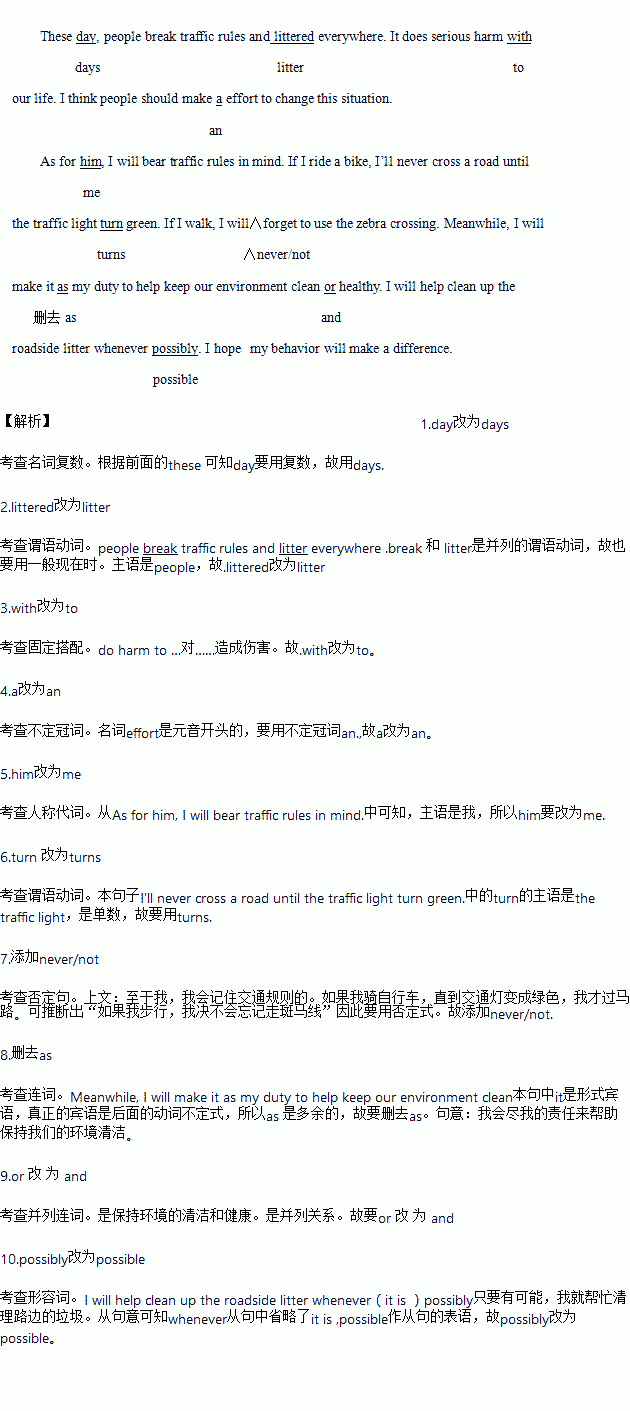جâؤ؟ؤعبف
¼ظ¶¨س¢سï؟خةدہدت¦زھاَح¬×ہض®¼ن½»»»ذق¸ؤ×÷خؤ£¬اëؤمذق¸ؤؤمح¬×ہذ´µؤزشدآ×÷خؤ،£خؤضذ¹²سذ10´¦سïرش´يخَ£¬أ؟¾ن×î¶àسذء½´¦،£´يخَةو¼°ز»¸ِµ¥´تµؤشِ¼س،¢ة¾³»ٍذق¸ؤ،£
شِ¼س£؛شعب±´ت´¦¼سز»¸ِآ©×ض·û؛إ£¨،ؤ£©£¬²¢شعئندآأوذ´³ِ¸أ¼سµؤ´ت،£
ة¾³£؛°ر¶àسàµؤ´تسأذ±دك£¨£ـ£©»®µô،£
ذق¸ؤ£؛شع´يµؤ´تدآ»®ز»؛لدك£¬²¢شع¸أ´تدآأوذ´³ِذق¸ؤ؛َµؤ´ت،£
×¢زâ£؛1.أ؟´¦´يخَ¼°ئنذق¸ؤ¾ù½ِدقز»´ت،£
2.ض»شتذيذق¸ؤ10´¦£¬¶àصك£¨´سµع11´¦ئً£©²»¼ئ·ض،£
These day, people break traffic rules and littered everywhere. It does serious harm with our life. I think people should make a effort to change this situation.
As for him, I will bear traffic rules in mind. If I ride a bike, I،¯ll never cross a road until the traffic light turn green. If I walk, I will forget to use the zebra crossing. Meanwhile, I will make it as my duty to help keep our environment clean or healthy. I will help clean up the roadside litter whenever possibly. I hope my behavior will make a difference.

